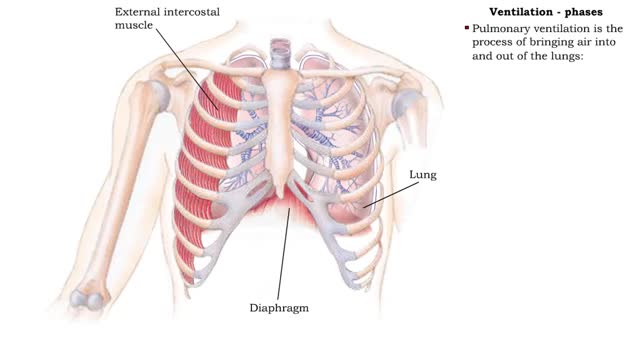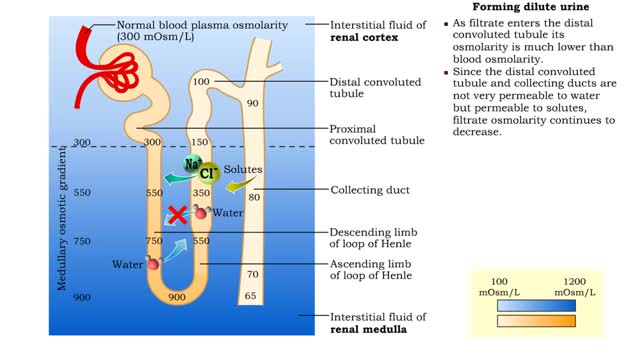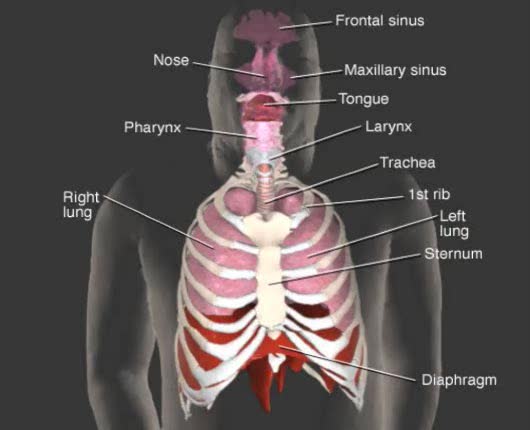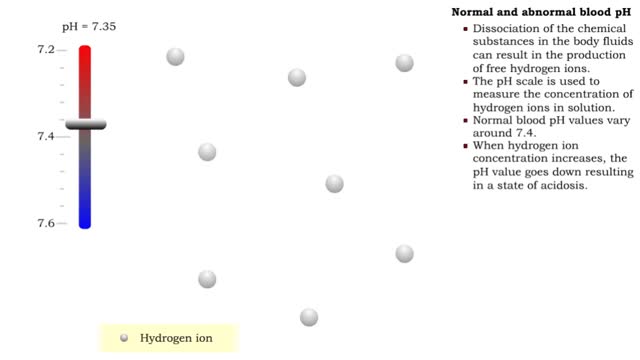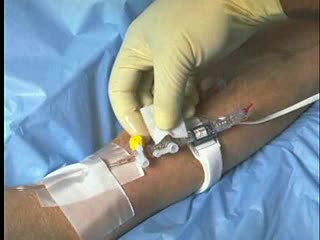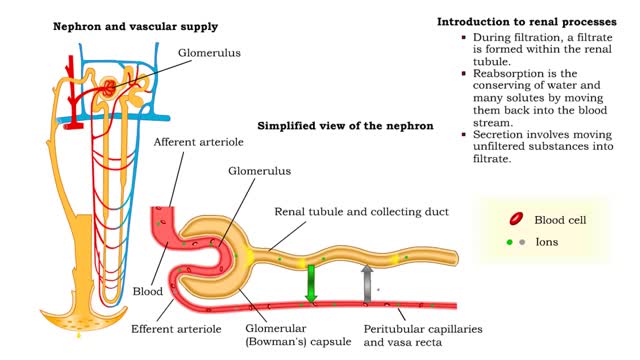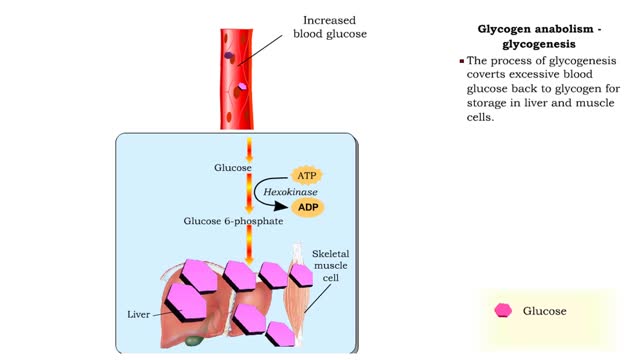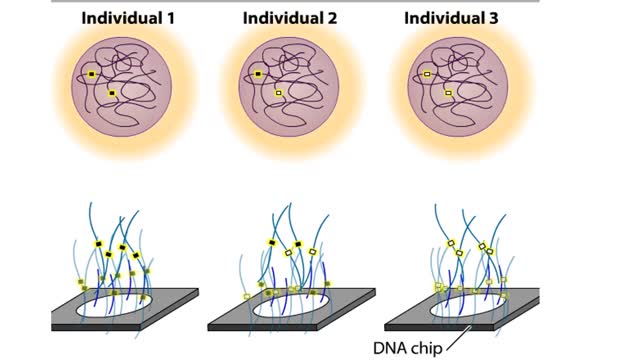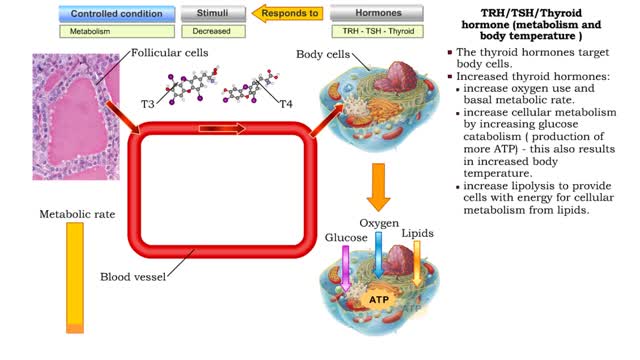Search Results
Results for: 'blood'
Ventilation - phases and driving forces
By: HWC, Views: 11524
Respiration is the exchange of gases between the atmosphere, blood, and cells The combination of 3 processes is required for respiration to occur Ventilation (breathing) External (pulmonary) respiration Internal (tissue) respiration The cardiovascular system assists the respiratory system b...
Forming urine ( influencing factors), Forming dilute urine & Forming concentrated urine
By: HWC, Views: 11883
• The amount of urine produced by the nephron depends on : • Body fluid volume. • Body fluid composition. • Dilute urine is formed when the body is normally hydrated. • The medullary osmotic gradient determines the osmolarity of the filtrate. • Filtrate osmolarity increase...
By: Administrator, Views: 494
Respiratory system: nose pharynx larynx trachea bronchi lungs Respiratory system’s primary function: Furnish oxygen (O2) for use by individual tissue cells and take away their gaseous waste product, carbon dioxide (CO2), through act of respiration. External respiration Lungs are vent...
By: HWC, Views: 11467
• Dissociation of the chemical substances in the body fluids can result in the production of free hydrogen ions. • The pH scale is used to measure the concentration of hydrogen ions in solution. • Normal blood pH values vary around 7.4. • When hydrogen ion concentration increases, t...
By: Administrator, Views: 15116
Leukemia is a type of cancer that affects the blood and bone marrow. Leukemia begins in a cell in the bone marrow. The cell undergoes a change and becomes a type of leukemia cell. Once the marrow cell undergoes a leukemic change, the leukemia cells may grow and survive better than normal cells.
Carbohydrate Metabolism: Introduction to renal processes and filtrate formation and composition
By: HWC, Views: 11549
• At the nephron, the three process responsible for the formation of urine include: • Glomerular filtration. • Tubular reabsorption. • Tubular secretion. • During filtration, a filtrate is formed within the renal tubule. • Reabsorption is the conserving of water and many s...
Glucose anabolism reactions: Glycogenolysis and Gluconeogenesis
By: HWC, Views: 11752
• Glucose not needed immediately is stored as glycogen. The process that creates it is glycogenesis. • When ATP is needed for body activities, stored glycogen is broken down by a process called glycogenolysis. • Glucose can be formed through two different anabolic reactions: • Glycog...
SNP Polymorphysim Microarray Chip - How to Test a Person's DNA
By: HWC, Views: 10754
To test a person's DNA, a researcher first needs a source of tissue. Most of the cells in a blood sample are red blood cells, which lack nuclei, but there are also a number of white blood cells, which do contain nuclei and chromosomal DNA. If we could see a particular DNA sequence in these cel...
By: HWC, Views: 10997
Thyroid hormone production • A decline in metabolic rate caused by increased metabolic need or physical exertion stimulates the production of thyrotropin hormone releasing (TRH) hormone from the cells of the hypothalamus. • Thyrotropin hormone releasing hormone targets the thyrotrophic ce...
Advertisement



